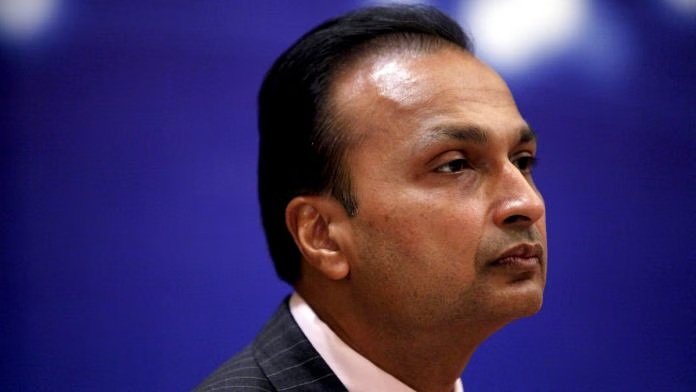State Bank of India Declares Reliance Communications’ Rs. 31,580 Crore Loan as Fraud, Implicates Anil Ambani in Fund Diversion Scandal
In a significant development in India’s corporate and financial landscape, the State Bank of India (SBI), the country’s largest public-sector bank, has classified the loan account of Reliance Communications (RCom), a telecommunications company owned by businessman Anil Ambani, as fraudulent. The decision, formalized on June 23, 2025, follows a forensic audit that uncovered extensive diversion and misuse of loan funds totaling Rs. 31,580 crore. This move has far-reaching implications for Ambani, whose business empire has been grappling with financial distress, and it underscores ongoing concerns about transparency and accountability in corporate lending practices.
Details of the Fraud Classification
SBI’s investigation revealed that a substantial portion of the Rs. 31,580 crore loan extended to RCom and its subsidiaries was not utilized for its intended purposes. According to the bank’s findings, approximately Rs. 13,667.73 crore (44% of the total loan) was used to repay other loans and obligations, while Rs. 12,692.31 crore (41%) was directed toward connected or related parties, deviating from the sanctioned objectives. Specific instances of misuse include:
Dena Bank Loan: A Rs. 250 crore loan, intended to address short-term cash flow mismatches, was allegedly diverted as an Inter-Corporate Deposit (ICD) to RailTel Corporation of India, with claims that it was used for External Commercial Borrowing (ECB) repayment.
IIFCL Loan: A Rs. 248 crore loan from India Infrastructure Finance Company Ltd (IIFCL), meant for capital expenditure, was reportedly used to pay ₹63 crore to Reliance Infratel Limited (RITL) and Rs. 77 crore to RIEL, routed through RCom’s subsidiary, RCIL.
Fund Cycling: An intraday limit of Rs. 100 crore was misused to cycle funds through group entities, including Reliance Webstore Limited (RWSL), Reliance Telecom Limited (RTL), and RCIL, multiple times, with transactions totaling Rs. 1,110 crore for collection proceeds.
Additionally, the total Inter-Corporate Deposits (ICDs) across RCom, RITL, and RTL amounted to Rs. 41,863.32 crore, of which only Rs. 28,421.61 crore was traceable, raising concerns about potential misappropriation and breach of trust. The forensic audit also identified Rs. 6,265.85 crore used to repay other bank loans and Rs. 5,501.56 crore transferred to related parties for purposes not aligned with the loan agreements.
***
Regulatory and Legal Consequences
Under Reserve Bank of India (RBI) guidelines, SBI is obligated to report the fraud to the RBI within 21 days of detection and to the Central Bureau of Investigation (CBI) or local police for further investigation. The classification of the loan as fraudulent carries severe penalties for the borrowers involved, including Anil Ambani, who was a promoter director of RCom.
These penalties include:
- A five-year ban from accessing finance, effective from the date of full loan repayment.
- Ineligibility for loan restructuring or additional credit facilities.
These measures could significantly hinder Ambani’s ability to revive his business ventures, which have already been under strain due to mounting debts and legal challenges.
***
RCom’s Insolvency Context
Reliance Communications has been under the Corporate Insolvency Resolution Process (CIRP) since June 28, 2019, following an order from the National Company Law Tribunal (NCLT) Mumbai on June 21, 2019. The process is managed by Resolution Professional Anish Niranjan Nanavaty, who oversees the company’s operations during insolvency proceedings. The fraud classification adds another layer of complexity to RCom’s financial recovery, as it may deter potential investors or resolution applicants.
***
Clarifications from Other Ambani-Owned Entities
In response to the fraud classification, other companies owned by Anil Ambani, namely Reliance Infrastructure (Reliance Infra) and Reliance Power, issued statements clarifying their non-involvement in the RCom loan issue. These companies emphasized that they are separate legal entities with no connection to the financial irregularities identified by SBI. This clarification aims to protect their market reputation and investor confidence amid the controversy surrounding RCom.
***
Broader Implications for Corporate Lending
The SBI’s action against RCom highlights the banking sector’s increasing vigilance in addressing loan fraud and fund diversion. The case serves as a stark reminder of the need for robust oversight mechanisms to ensure that loan funds are used for their intended purposes. It also raises questions about the governance practices within large corporate entities and the role of regulatory bodies in preventing financial mismanagement.
For Anil Ambani, once ranked among the world’s richest individuals, this development marks another setback in a series of financial and legal challenges. The fraud classification not only tarnishes his reputation but also poses significant hurdles for his business empire, which has been struggling to regain stability.
Summary Table of Loan Misuse
| Total Loan Amount | Rs. 31,580 crore |
| Amount for Loan Repayment / Obligations | Rs. 13,667.73 crore (44%) |
| Amount Paid to Connected Parties | Rs. 12,692.31 crore (41%) |
| Specific Misutilizations | – Rs. 6,265.85 crore for repaying other bank loans – Rs. 5,501.56 crore to related/connected parties, not aligned with sanctioned purposes |
| Dena Bank Loan Misuse | Rs. 250 crore diverted as ICD to RCIL, claimed for ECB repayment |
| IIFCL Loan Misuse | Rs. 248 crore; paid Rs. 63 crore to RITL and Rs. 77 crore to RIEL via RCIL |
| ICD Transactions Total | Rs. 41,863.32 crore, only Rs. 28,421.61 crore traceable |
| Intraday Limit Misuse | Rs. 100 crore cycled through group entities multiple times |
(India CSR)






